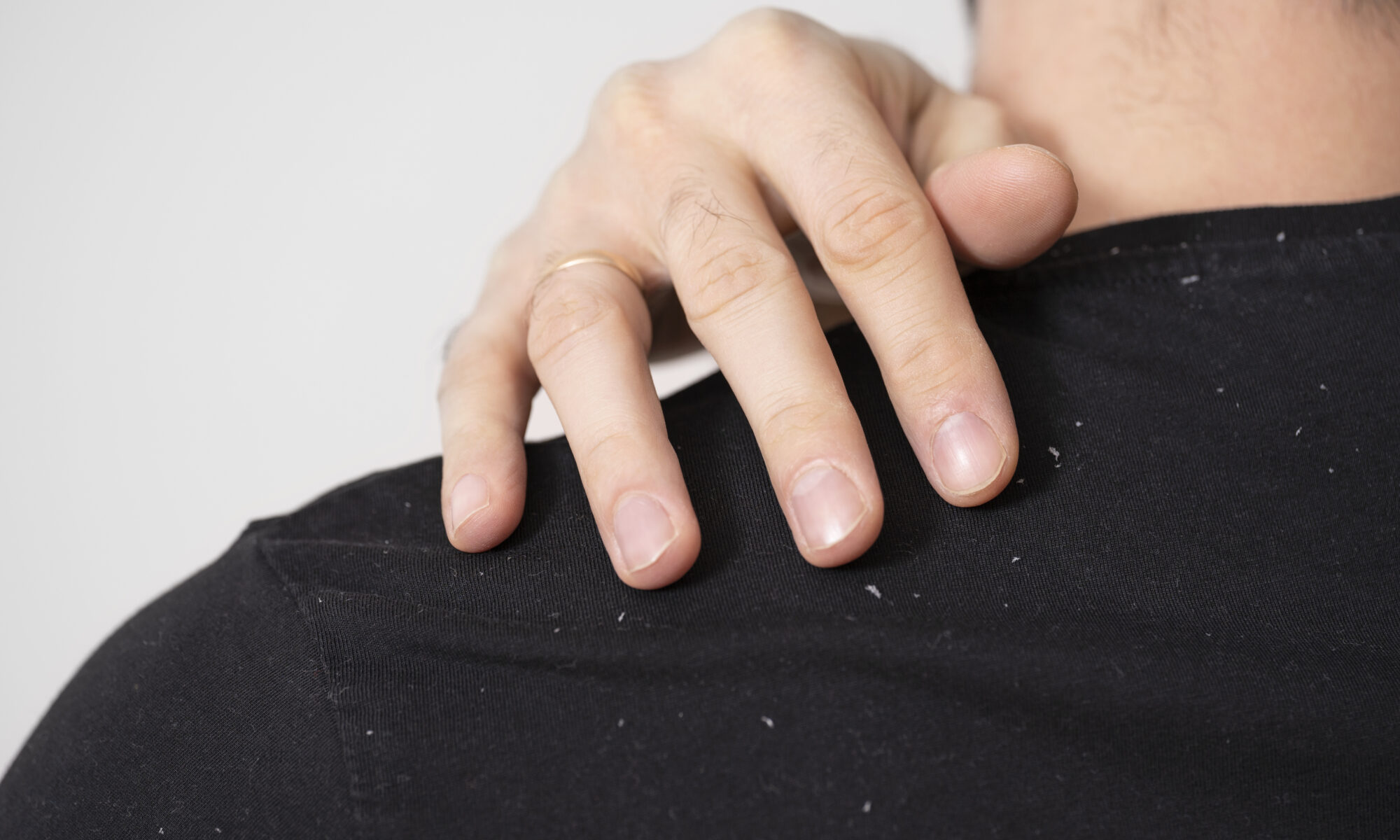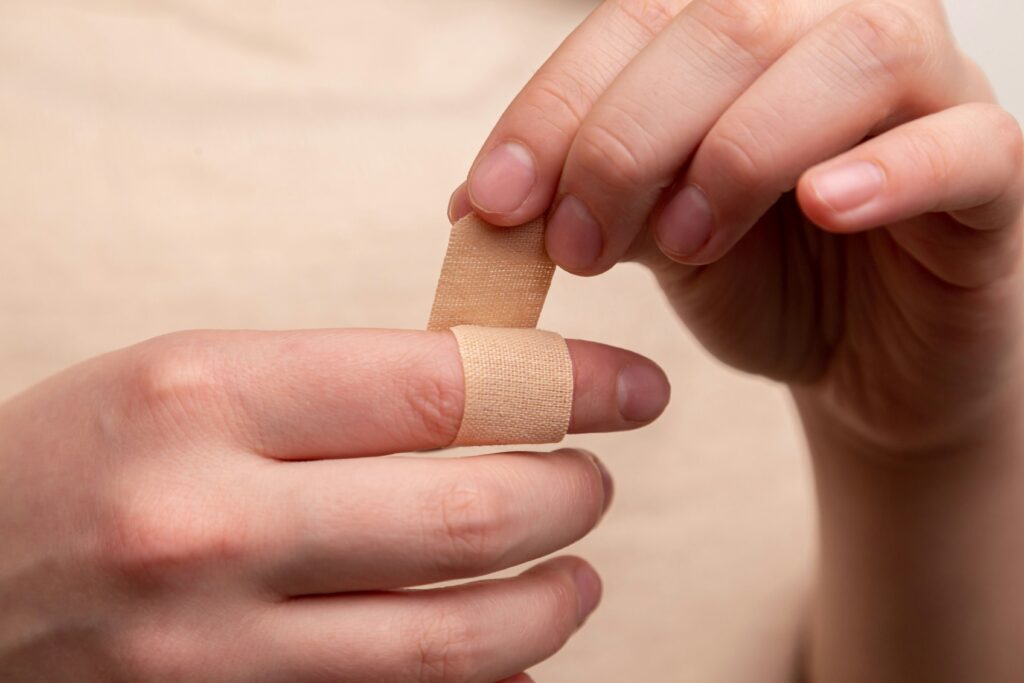Body odor can be a sensitive subject for many, affecting confidence and social interactions. Fortunately, a primary care doctor in Fairfield, CT, shares expert advice on managing and eliminating body odor. Whether through personal hygiene, dietary changes, or medical interventions, knowing the root causes and effective remedies can make a significant difference.
Table of Contents
Key Takeaways
- Regular bathing with antibacterial soap is essential for removing sweat and odor-causing bacteria.
- Antiperspirants reduce sweat, while deodorants mask odor; choosing the right type is crucial for effectiveness.
- Wearing breathable, natural fiber clothing helps prevent sweat accumulation and minimizes bacterial growth.
- Dietary adjustments can significantly improve body odor.
- Managing stress through exercise, meditation, or adequate sleep can decrease sweat production and odor.
- Natural remedies like apple cider vinegar and baking soda offer alternative options for odor control.
- For personalized advice on managing body odor, Docs Primary Care – Fairfield offers expert guidance and support.

What Causes Body Odor
Body odor is a complex result of the body’s natural processes. Understanding these causes can help in effectively managing and preventing unpleasant scents. According to trusted primary care doctors in Fairfield, CT, several key factors contribute to body odor.
Sweat and Bacteria Interaction
The primary cause of body odor is the interaction between sweat and bacteria on the skin. Everyone sweats, but it’s the bacterial breakdown of sweat that produces a noticeable smell. Trusted primary care doctors in Fairfield, CT, explained that two types of sweat glands, eccrine and apocrine, play roles in this process. Eccrine glands cover most of the body and produce sweat to cool it down. On the other hand, apocrine glands are found in areas like the armpits and groin and have a thicker sweat that bacteria can break down more quickly.
Diet and Body Odor
What you eat significantly affects how you smell. Foods like garlic, onions, and spices can produce a more pungent body odor. A primary care doctor in Fairfield, CT, can offer dietary advice to help mitigate these effects, which includes a balanced diet rich in fruits, vegetables, and whole grains that may lead to a more neutral body odor.
Hormonal Changes
Hormonal fluctuations are another contributing factor to body odor. These changes, which can occur due to puberty, menstruation, pregnancy, or menopause, affect sweat production and composition, leading to body odor variations. Guidance from a primary care doctor in Fairfield, CT, can help manage these changes effectively.
Health Conditions
Certain medical conditions can also lead to an increase in body odor. Certain conditions like hyperhidrosis (excessive sweating), diabetes, and thyroid problems can alter the amount and type of sweat produced. A comprehensive evaluation by a primary care doctor in Fairfield, CT, can help identify any underlying health issues contributing to body odor.
8 Expert Tips to Get Rid of Body Odor
Managing body odor requires a multifaceted approach, combining good hygiene practices, appropriate product use, dietary adjustments, and more. Below are detailed strategies, as experienced primary care doctors recommended in Fairfield, CT, to help you combat body odor.
1. Maintain Personal Hygiene
Primary care doctors in Fairfield, CT, stress the significance of this fundamental practice, especially after activities that induce sweating, such as sports or during hot weather conditions. Implementing the following practical personal hygiene tips can significantly reduce the risk of developing unpleasant body odor:
- Regular Bathing: Daily showers or baths are essential for washing away sweat and the bacteria that cause odor. This step is vital after exercising or any activity leading to excessive sweating.
- Use of Antibacterial Soap: For eliminating odor-causing bacteria, antibacterial soap can be more effective than regular soap. To enhance hygiene, primary care doctors in Fairfield, CT, suggest prioritizing these soaps, especially in sweat-prone areas.
- Thorough Drying: Properly drying your body post-bathing is critical. Moist environments foster bacterial growth; hence, ensuring your skin, particularly in areas like the armpits, groin, and feet, is completely dry can deter bacterial proliferation.
- Extra Attention to Sweat-Prone Areas: Areas with a higher concentration of apocrine glands, such as the armpits, feet, and groin, necessitate additional care. These glands produce the type of sweat that bacteria metabolize to generate odor. Focusing on these regions during your hygiene routine can markedly diminish body odor.
- Avoid Sharing Personal Items: Sharing personal items such as towels, clothes, or deodorant can transfer bacteria from one person to another, worsening body odor issues. Primary care doctors in Fairfield, CT, recommend using personal items exclusively to prevent the spread of bacteria.

2. Use Antiperspirants and Deodorants
Antiperspirants and deodorants are critical products in managing body odor. As noted by primary care doctors in Fairfield, CT, antiperspirants contain aluminum-based compounds that temporarily block sweat pores, which reduces sweat production. On the other hand, deodorants neutralize the smell of sweat and often contain antimicrobial agents to reduce bacteria.
Finding the right antiperspirant or deodorant is a matter of personal body chemistry. Primary care doctors in Fairfield, CT, recommend trying different types and strengths to find what works best for you. Natural and aluminum-free options can be effective for those with sensitive skin or concerns about aluminum.
3. Wear Breathable Clothing
Clothing directly affects how your body handles sweat. Breathable clothing made from natural fibers like cotton, linen, and wool allows for better air circulation, which helps evaporate sweat more efficiently. This reduces the moist environment that odor-causing bacteria thrive in. Primary care doctors in Fairfield, CT, recommend opting for these materials, especially in everyday situations, to help minimize body odor.
- Opt for Natural Fibers: Clothes made from natural fibers such as cotton, linen, and wool are excellent for everyday wear because they allow the skin to breathe. These materials let sweat evaporate instead of trapping moisture against the skin, which can decrease the growth of bacteria responsible for body odor.
- Choose Loose-Fitting Clothes: Loose clothing enhances air circulation around the body, keeping you more relaxed and reducing the amount of sweat produced. This is particularly important during warmer months or when you feel anxious or stressed, as these conditions can increase sweating.
- Wear Moisture-Wicking Fabrics for Physical Activity: Moisture-wicking fabrics are beneficial for exercise or activities that induce sweat. These materials draw sweat away from the skin, keeping you dry and comfortable. Primary care doctors in Fairfield, CT, advise wearing these fabrics during workouts or in hot weather to prevent excessive moisture and odor.
- Change Clothes After Sweating: Changing out of sweaty clothes as soon as possible is essential to prevent bacteria from breaking down sweat and causing odor. This includes socks and underwear, which can become breeding grounds for bacteria if left on too long.
4. Regular Laundry
Keeping your clothing clean is crucial in the fight against body odor. Sweat and the bacteria that cause odors can accumulate on fabrics, so regular laundry is essential. Primary care doctors in Fairfield, CT, offer several key recommendations to ensure your clothing doesn’t contribute to body odor problems.
- Use Fragrance-Free Detergent: Opting for a fragrance-free detergent can prevent the addition of artificial scents that may mix unfavorably with body odor or cause skin irritation. This choice helps ensure that clothes come out smelling clean without masking odors with heavy fragrances.
- Avoid Overloading the Washing Machine: It’s important not to overload your washing machine. Clothes need enough space to move freely in the water to allow the detergent to reach every part of the fabric for a thorough cleaning. This practice is especially recommended by primary care doctors in Fairfield, CT, to ensure that sweat and bacteria are effectively removed from clothing.
- Soak Workout Clothes: For clothes prone to stubborn odors, such as workout attire, a pre-wash soak can make a big difference. Mixing water with a bit of vinegar and soaking your clothes for 15 to 30 minutes before washing can help neutralize persistent smells. The acidic nature of vinegar works to break down odor-causing bacteria and sweat residues that detergent alone may not remove.
5. Dietary Changes
Dietary changes can profoundly impact body odor, offering a natural way to manage and improve it. According to primary care doctors in Fairfield, CT, foods can contribute to a more pungent odor or help neutralize and reduce it.
Here are detailed dietary adjustments to consider:
- Reduce Intake of Odor-Inducing Foods: Foods that cause body odor include onions, garlic, and spicy foods. These ingredients can intensify your body’s scent as they are metabolized and their compounds are released through your pores.
- Increase Zinc-Rich Foods: Zinc plays a crucial role in maintaining a healthy body odor. Foods high in zinc, such as nuts, seeds, and whole grains, can help naturally deodorize the body from the inside out. Primary care doctors in Fairfield, CT, often recommend incorporating these into your daily diet.
- Incorporate Chlorophyll-Rich Foods: Chlorophyll, found in leafy green vegetables like spinach, kale, and parsley, has natural deodorizing properties. Adding various greens to your meals can help neutralize body odor.
- Stay Hydrated: Drinking plenty of water is essential for flushing toxins out of your body, which can otherwise contribute to body odor. Adequate hydration ensures that your body can efficiently process and eliminate waste products.

6. Manage Stress
Managing stress is a crucial but often overlooked strategy in reducing body odor. Stress triggers the body’s sweat glands, particularly the apocrine glands in areas like the armpits, which produce “stress sweat” that can lead to a more noticeable odor when broken down by bacteria. Primary care doctors in Fairfield, CT, highlight the direct link between stress levels and body odor, suggesting several effective methods to manage stress.
- Regular Physical Activity: Exercise is a powerful stress reliever that helps manage stress hormones and improves overall health. Activities like walking, jogging, swimming, or yoga can significantly reduce stress levels, reducing sweat and body odor.
- Mindfulness and Meditation: Incorporating mindfulness practices such as meditation, deep breathing exercises, or progressive muscle relaxation can calm the mind and reduce stress. These techniques help control the body’s response to stress, minimizing the production of stress-induced sweat.
- Adequate Sleep: Ensuring you get enough restful sleep is essential in managing stress. Lack of sleep can exacerbate anxiety, which increases sweating and body odor. Primary care doctors in Fairfield, CT, recommend establishing a regular sleep schedule to improve sleep quality and reduce stress.
- Time Management: Effective time management can reduce stress by preventing last-minute rushes and feeling overwhelmed. Planning and prioritizing tasks can help maintain a calmer state of mind.
- Seek Support: Sometimes, talking about your stressors with friends, family, or a professional can significantly reduce stress levels. Primary care doctors in Fairfield, CT, often advise seeking support when feeling overwhelmed, as addressing the root cause of stress can directly impact your body’s physiological responses.
7. Incorporate Natural Remedies
Natural remedies provide an alternative for those who prefer not to use commercial antiperspirants or deodorants. As primary care doctors in Fairfield, CT, recommended, several at-home treatments can help manage body odor by targeting the bacteria that cause it and adjusting the skin’s pH.
- Apple Cider Vinegar: Soak a cotton ball in apple cider vinegar and apply it to underarms and other sweat-prone areas in the morning or before bed. The acidic properties help lower the skin’s pH, making it less hospitable for odor-causing bacteria. Rinse off after a few minutes if skin sensitivity occurs.
- Witch Hazel: Dab witch hazel onto the skin with a cotton pad. Its astringent properties can help reduce pore size, minimize sweat production, and adjust skin pH. Witch hazel can be especially beneficial for sensitive skin, as it is gentler than commercial products.
- Baking Soda: Mix baking soda with water to create a paste and apply it to the underarms. Baking soda neutralizes body odor by absorbing sweat and eliminating bacteria. Leave it on for a few minutes before washing it off to avoid irritation.
- Lemon Juice: Cut a fresh lemon in half and rub it directly onto the skin. The citric acid acts similarly to apple cider vinegar by creating an acidic environment where bacteria struggle to thrive. Avoid using lemon juice if you have cuts or skin abrasions, as it can sting.
Before incorporating these natural remedies into your routine, primary care doctors in Fairfield, CT, advise performing a patch test to ensure you don’t have an allergic reaction or skin sensitivity to the ingredients. These simple, natural solutions can be a valuable addition to your hygiene regimen and help keep body odor at bay with ingredients you likely already have at home.
8. Seek Medical Advice
Persistent body odor despite good hygiene may indicate an underlying health issue, such as hyperhidrosis or a metabolic disorder. Trusted primary care doctors in Fairfield, CT, like those from Docs Primary Care – Fairfield, can provide assessments and treatments, including prescription antiperspirants, dietary advice, or medical procedures for more severe cases.
FAQs
Is it normal for my body odor to change over time?
It’s common for body odor to evolve due to various factors such as age, diet, hormonal fluctuations, and even stress levels. Dietary changes, for instance, can have a noticeable impact on how your body smells. Similarly, hormonal changes can alter body odor as we go through different life stages. If you encounter a sudden or significant change in body odor, it might be more than just a simple fluctuation. Such instances warrant a consultation with a primary care doctor in Fairfield, CT, to rule out underlying health issues.
How often should I apply antiperspirant or deodorant?
The frequency of antiperspirant or deodorant application varies from person to person, depending on factors like activity level, sweat production, and personal preference. While some individuals may find a once-daily application sufficient, others might need to reapply throughout the day to maintain freshness. For personalized product selection and application frequency recommendations, discussing your specific situation with a primary care doctor in Fairfield, CT, can offer tailored advice.
Are there any side effects to using antiperspirants frequently?
Frequent use of antiperspirants can lead to skin irritation for some individuals, especially those with sensitive skin. Ingredients like aluminum compounds, effective at reducing sweat, can cause irritation or contact dermatitis in susceptible individuals. If you experience discomfort or skin reactions from your antiperspirant, a primary care doctor in Fairfield, CT, can recommend alternative products or solutions to minimize irritation while effectively managing sweat and odor.
Can natural remedies completely replace deodorants?
Natural remedies can be a viable option for managing body odor for some individuals. Ingredients like baking soda, apple cider vinegar, and essential oils can provide odor-neutralizing effects. However, the effectiveness of natural remedies varies widely among individuals. Some may find these solutions sufficient independently, while others may need to use them with traditional deodorants or antiperspirants for optimal results. Consulting with a primary care doctor in Fairfield, CT, can help you explore the most effective and suitable options for your body odor management.
How can I tell if my body odor is normal or if I need to see a doctor?
Body odor is a normal physiological phenomenon, but it can sometimes be a sign of a health issue, especially if a sudden change or body odor becomes challenging to manage with regular hygiene practices. If you’re concerned about your body odor, have noticed a significant change, or if the odor persists despite good hygiene, it’s a good idea to consult with a primary care doctor in Fairfield, CT. They can assess your situation and offer insights into potential causes.

Feel Fresh & Confident Daily! Get Expert Body Odor Solutions at Docs Primary Care – Fairfield!
Managing body odor combines personal hygiene, lifestyle choices, and sometimes medical intervention. You can effectively control body odor by following the expert tips from a primary care doctor in Fairfield, CT. At Docs Primary Care – Fairfield, our team of primary care doctors is dedicated to providing personalized advice and solutions to help you tackle body odor effectively. We understand the impact of body odor on your daily life and are here to support you. Contact us today for expert guidance and care, and take the first step towards feeling confident and fresh every day.




